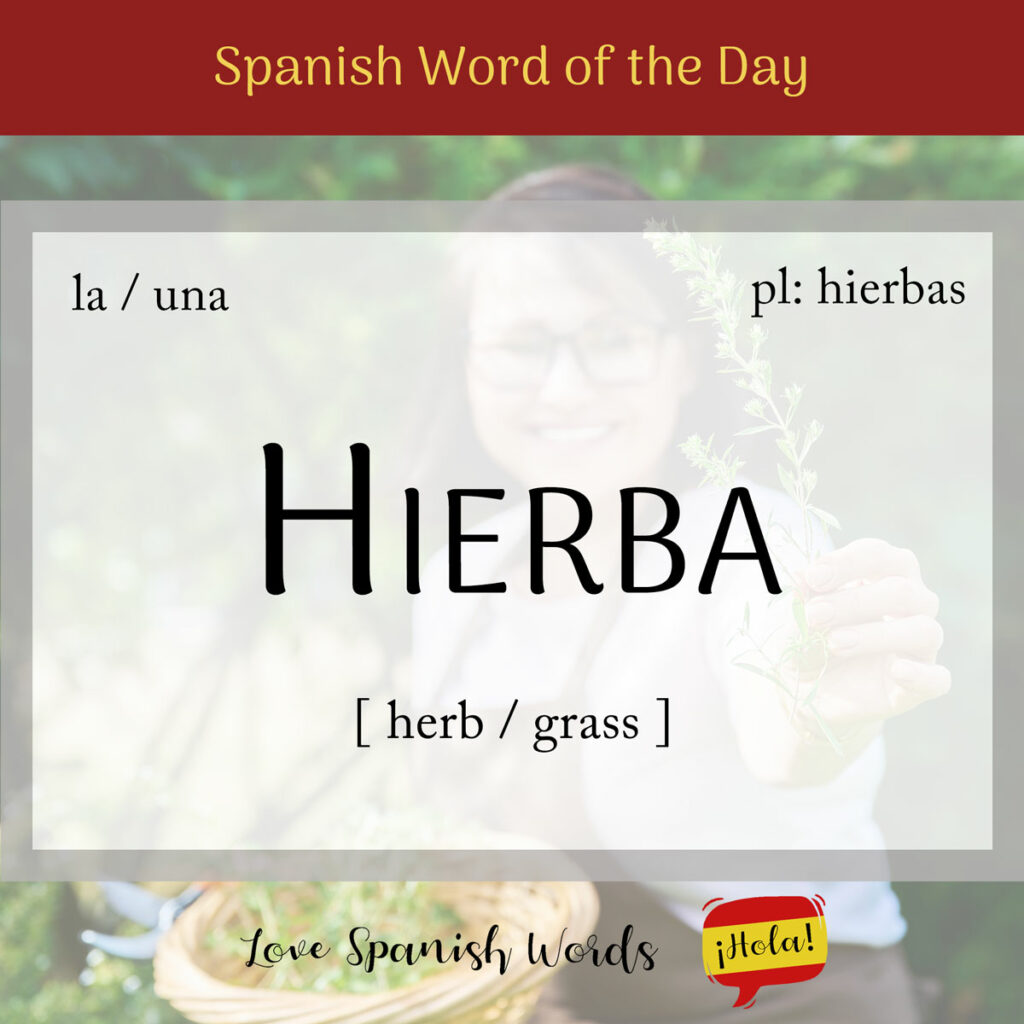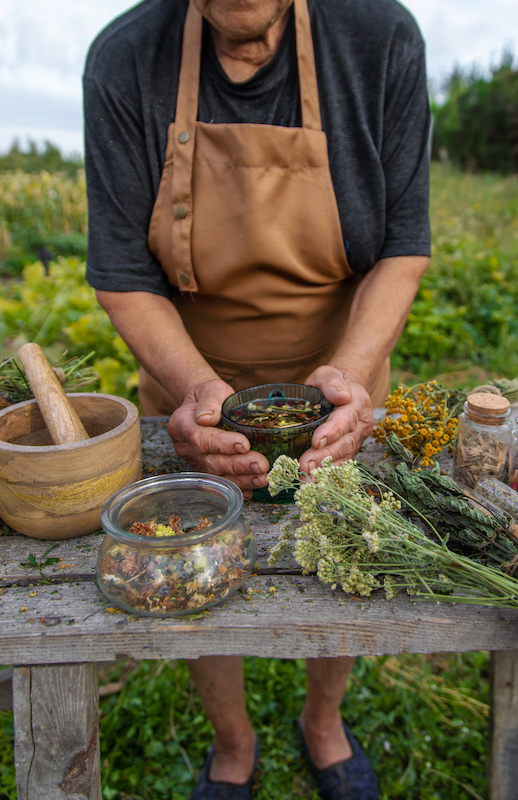When I was sick, my grandmother would always prepare various teas for me using different hierbas, a Spanish noun that refers to herbs and grass. Derived from the Latin word herba, meaning plant or vegetation, hierba is a term commonly used to describe the green, leafy plants that cover the ground or are used for culinary, medicinal, or aromatic purposes.
Latin American Pronunciation
European Pronunciation

The word hierba is a feminine noun that takes the following definite and indefinite articles:
- la hierba = the herb
- una hierba = a herb
- las hierbas = the herbs
- unas hierbas = some herbs
Me gusta usar las hierbas aromáticas en mis recetas.
I like to use aromatic herbs in my recipes.
In everyday language, hierba can refer to the natural grass found in campos (fields) and jardines (gardens), as well as to specific herbs like albahaca (basil) or orégano (oregano) that are valued for their flavour and healing properties. This word is deeply rooted in both the natural world and the cultural practices of cuisine and traditional medicine.
There are many types of hierbas with a variety of uses in cooking, medicine, and aromatherapy. Here are some common examples:
Culinary Herbs:
- Perejil (parsley): A versatile herb used for garnish, flavoring soups, and stews.
- Cilantro (coriander): Common in Latin American, Asian, and Middle Eastern dishes, particularly in salsas and curries.
- Tomillo (thyme): Often used in French and Mediterranean dishes, pairs well with meats and vegetables.
- Romero (rosemary): Known for its strong, aromatic flavor, used in roasting meats and vegetables.
Medicinal Herbs:
- Manzanilla (chamomile): Used to make soothing teas, known for its calming effects and aid in digestion.
- Menta (mint): Helps with digestion, and often used in teas and as a remedy for colds and headaches.
- Lavanda (lavender): Used in aromatherapy for relaxation and to reduce anxiety.
- Salvia (sage): Traditionally used for its antiseptic properties and in teas for sore throats.
- Eucalipto (eucalyptus): Used in treatments for respiratory issues and as an essential oil for its invigorating scent.
Aromatic Herbs:
- Hierba buena (peppermint): Often used in teas and to add flavor to drinks and desserts.
- Laurel (bay Leaf): Adds depth to soups, stews, and sauces, with a subtle, earthy flavor.
- Hinojo (fennel): Has a licorice-like flavor, used in both cooking and herbal remedies.
These herbs can be used frescas (fresh) or secas (dried), depending on the desired flavor intensity and purpose.
Me encanta el té de hierba buena con manzanilla
I love peppermint tea with chamomile.

In colloquial Spanish, the word hierba is often used as a slang term for marijuana. This usage reflects the herb-like appearance of cannabis leaves and buds, which resemble other types of plants or herbs. When people refer to hierba in this context, they are typically talking about marijuana used for recreational purposes

Idiomatic expressions using ‘hierba’
Hierba mala nunca muere
Literal translation: A bad weed never dies
English meaning: This saying suggests that bad people or undesirable things seem to last longer than they should, much like weeds that are hard to get rid of.

